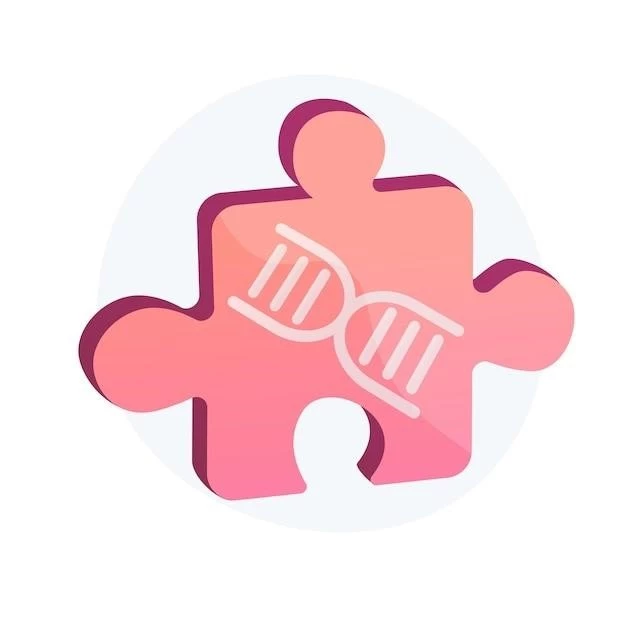Understanding the Causes of Chromosome 17 Trisomy is crucial for managing this condition effectively․ Recognizing the Symptoms and Signs early on can lead to prompt diagnosis․ Learn about Diagnosis and Testing methods available․ Stay informed about the latest Research Advances to ensure the best Treatment Options and Prognosis․ Special Considerations for Children and valuable Support and Resources can make a significant impact․
Causes of Chromosome 17 Trisomy
Chromosome 17 Trisomy occurs when there is an extra copy of chromosome 17 in the cells․ This additional genetic material can result from errors during cell division or be inherited from a parent with a rearrangement of chromosome 17․ Understanding the causes can help individuals and families navigate the complexities of this genetic condition․ It is advisable to consult with a genetic counselor or healthcare provider to discuss specific risk factors and potential genetic testing options for a better understanding of the condition․
Symptoms and Signs of Chromosome 17 Trisomy
Common symptoms of Chromosome 17 Trisomy can vary widely and may include developmental delays٫ intellectual disabilities٫ distinctive facial features٫ and potential health issues affecting various body systems․ It is essential for individuals and caregivers to be aware of these signs․ Early detection and intervention are key in managing the condition effectively․ Regular monitoring by healthcare professionals and specialists can help address specific symptoms and provide tailored care to improve quality of life for individuals with Chromosome 17 Trisomy․ Seeking medical advice promptly upon noticing any concerning symptoms is highly recommended․
Diagnosis and Testing for Chromosome 17 Trisomy
Diagnosing Chromosome 17 Trisomy often involves genetic testing such as chromosome analysis٫ fluorescence in situ hybridization (FISH)٫ or chromosomal microarray analysis․ Healthcare providers may also conduct physical exams٫ developmental assessments٫ and imaging studies to evaluate symptoms and complications associated with the condition․ It is crucial for individuals to undergo comprehensive testing and consultations with genetic specialists to confirm the diagnosis accurately․ Seeking early diagnosis can facilitate timely access to appropriate medical care٫ support services٫ and interventions tailored to individual needs․
Treatment Options for Chromosome 17 Trisomy
Management of Chromosome 17 Trisomy focuses on addressing individual symptoms and providing supportive care․ Treatment plans may involve a multidisciplinary approach including therapies such as physical, occupational, and speech therapy to support development and improve quality of life․ Additionally, medications may be prescribed to manage specific health issues related to the condition․ Regular monitoring by healthcare providers is essential to adjust treatment strategies as needed․ Collaborating closely with medical professionals can help optimize care and support for individuals with Chromosome 17 Trisomy․
Prognosis and Life Expectancy with Chromosome 17 Trisomy
The prognosis for individuals with Chromosome 17 Trisomy can vary depending on the specific symptoms and severity of the condition․ While there is a broad spectrum of manifestations, early intervention and comprehensive care can positively impact the quality of life for affected individuals․ It is essential for families to work closely with healthcare providers to develop a personalized treatment plan and supportive strategies․ Understanding the potential challenges and accessing appropriate resources can help navigate the journey with Chromosome 17 Trisomy effectively and enhance overall well-being․
Research Advances in Chromosome 17 Trisomy
Ongoing research into Chromosome 17 Trisomy continues to enhance our understanding of the condition and explore potential treatment avenues․ From genetic studies to clinical trials, advancements in technology and medical science offer hope for improved management strategies and outcomes․ Staying informed about the latest research findings and participating in research initiatives can contribute to the advancement of knowledge and therapeutic options for individuals living with Chromosome 17 Trisomy․ Collaborating with healthcare professionals and research teams can provide valuable insights and opportunities for the community affected by this genetic condition․

Chromosome 17 Trisomy in Children⁚ Special Considerations
Children with Chromosome 17 Trisomy may require specialized care and tailored interventions to address their unique needs․ Early developmental assessments, educational support, and therapeutic services can play a crucial role in promoting growth and development․ It is important for parents and caregivers to collaborate closely with healthcare providers, educators, and specialists to create a holistic care plan that encompasses medical, educational, and social aspects․ Seeking support from community resources and connecting with other families facing similar challenges can provide valuable guidance and emotional support on this journey․
Support and Resources for Families Affected by Chromosome 17 Trisomy
Families impacted by Chromosome 17 Trisomy can benefit from a range of support services and resources designed to offer guidance and assistance․ Connecting with support groups, online communities, and local organizations can provide emotional support and valuable information sharing․ Accessing specialized medical care, educational resources, and therapy services can help families navigate the challenges associated with the condition․ It is essential for families to advocate for their loved ones, stay informed about available resources, and prioritize self-care to face the journey with strength and resilience․
